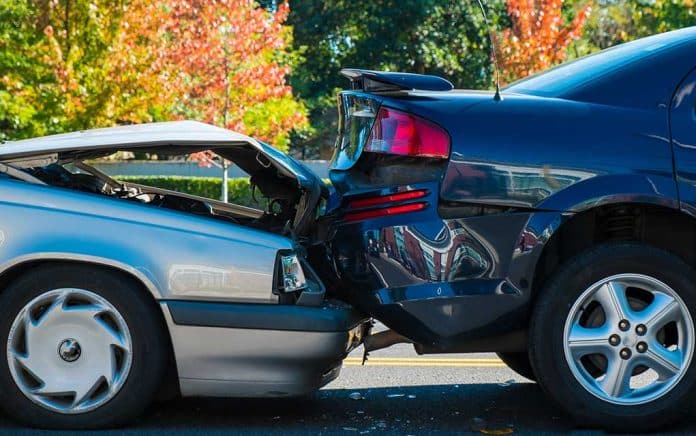
(FinancialHealth.net)
Know When to Pay Cash After a Crash
Experiencing a major car accident can be devastating. Trying to figure out who’s at fault is often one-sided with one party blaming the other. That’s why law enforcement and insurance agencies get involved. In fact, it’s illegal to leave the scene of an accident without reporting it.
But what about a minor fender bender where you were at fault? If you hit another car or damaged property, you should always file a claim. In cases that are minor and no other vehicle or property is involved, you may want to pay cash for the repairs.
Live in a No-Fault State?
Some states, like Michigan and New Jersey, are no-fault insurance states. This means that when the driver of the policy gets into an accident whether it’s their fault or someone else’s, they turn the claim into their insurance company for reimbursement.
Insurance rules in these states are more strict when starting a new policy because of this. Credit, employment history and driving record rate a driver before the policy premium is underwritten and determined.
If a driver in one of these states gets into a minor accident with no other vehicle involved, and it was their own fault, they may wish to pay out of pocket if the vehicle damage is minor — this will prevent their rates from going up.
When Insurance Companies Get Involved
Whether the drivers live in a no-fault state or not, insurance companies should be contacted if there is an accident or police are called to the scene. Most law enforcement officers automatically request insurance information, which most likely means the insurance company will be notified.
Auto insurance exists so drivers are protected from having to fork out hundreds and sometimes thousands of dollars in damages. If the injured party’s insurance company sues the driver at fault, the insurance is in place to pay medical, property and punitive damages.
What Happens To Your Insurance Rates
For a fender bender or minor dent, the deductible also has to be considered. Maybe the insurance company was already contacted but the driver that did the damage to their own vehicle decided to pay for the repairs himself. This again could be because of a high deductible or they don’t want their rates to be affected. Keep in mind this should only be done if another vehicle or person is not involved in the accident.
When a claim is filed and it’s the driver’s fault, the insurance rate is typically affected by an annual rate increase. Too many tickets and claims can result in the driver being classified in a high-risk category or having insurance denied and the policy canceled.
Several factors should go into determining whether to just settle on a fender bender or get the insurance company involved. The bottom line is if it’s your property, you’re the one at fault and the damage is minor, paying cash is a valid option. On the other hand, you should always file a claim if the damage is extensive or you caused damage to someone else’s car or property.
~Here’s to Your Financial Health!
Copyright 2019, FinancialHealth.net


















